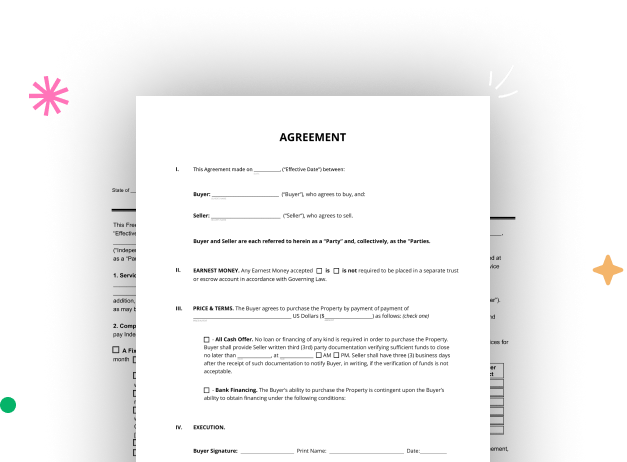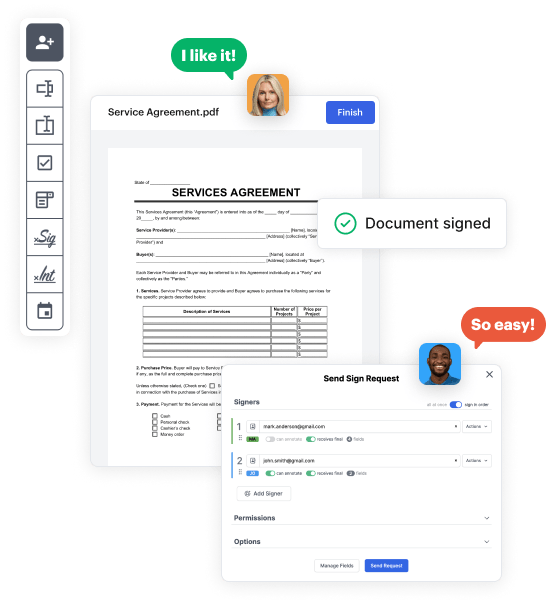

Start by setting up a free DocHub account using any available sign-up method. If you already have one, simply log in.
Try out the complete set of DocHub's advanced tools by signing up for a free 30-day trial of the Pro plan and proceed to build your Defendant Interrogatory Form.
In your dashboard, choose the New Document button > scroll down and choose to Create Blank Document. You will be redirected to the editor.
Use the Page Controls icon indicated by the arrow to toggle between different page views and layouts for more convenience.
Explore the top toolbar to add document fields. Add and configure text boxes, the signature block (if applicable), add photos, and other elements.
Organize the fillable areas you added based on your desired layout. Adjust the size, font, and alignment to make sure the form is straightforward and professional.
Save the ready-to-go copy in DocHub or in platforms like Google Drive or Dropbox, or design a new Defendant Interrogatory Form. Share your form via email or utilize a public link to engage with more people.